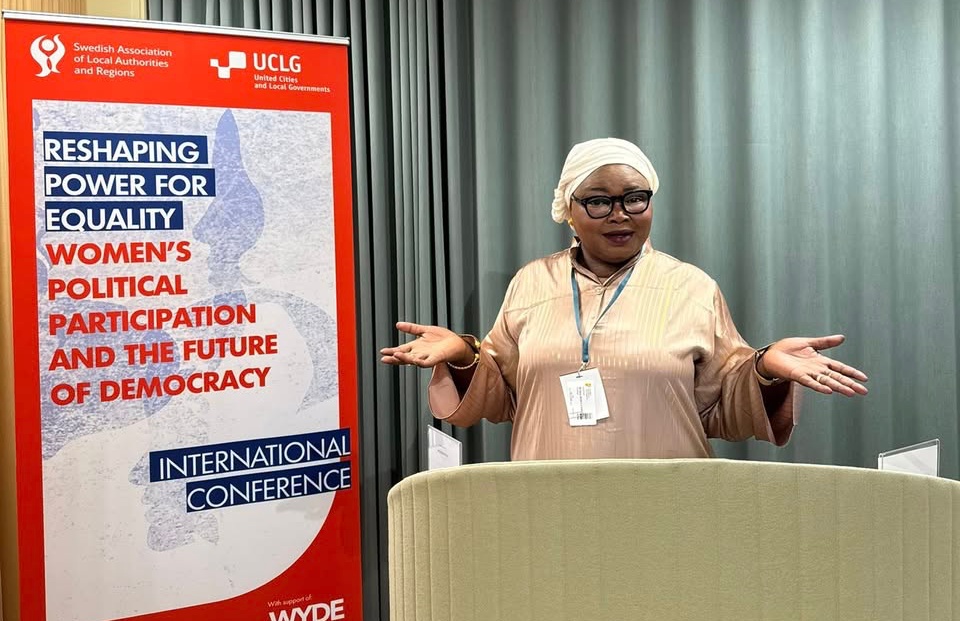Gambiaj.com – (Stockholm, Sweden) – Rohey Malick Lowe, Lord Mayor of Banjul, is among the distinguished international leaders participating today in “Women’s Political Participation and the Future of Democracy,” a high-level session held in Stockholm.
The event is part of the Reshaping Power for Equality international conference, co-organized by the United Cities and Local Governments (UCLG), UCLG Women, and the Swedish Association of Local Authorities and Regions (SALAR).
In her address, Mayor Lowe emphasized the growing importance of local and regional governments—and their associations—in revitalizing democratic institutions through feminist municipalism.
She described how integrating principles of care, equality, public participation, and safety are not merely ideals but essential components of institutional transformation. Her remarks positioned local feminist leaders as central actors in global governance debates.
Sweden, often cited for its strong commitment to social equality, peace, and public welfare, serves as both host and a model in this dialogue. Lowe spoke of her pride in Sweden as a “second home,” pointing to the country’s long tradition of integrating care into its public policies.
The Stockholm forum underscores the strategic role of local governments in the global push for gender equality.
Among the sessions are panels on institutional change, representation, and intersectionality. Speakers—including mayors, deputy mayors, councillors, and former national ministers—are discussing concrete mechanisms to ensure that women and girls, as well as diverse and marginalized groups, are included in decision-making at all levels.
Mayor Lowe extended particular praise to the leadership of SALAR under Carolina Sevenson whose Swedish local government leadership is known for spearheading the advocacy for feminist municipalism.
She offered her sincere appreciation to the organisers for bringing this vital dialogue to the forefront at a moment when democratic renewal is seen as increasingly urgent.
As the conference continues, attention will turn toward translating the lofty principles discussed—care, equality, safety, and public participation—into tangible policies and the everyday operations of municipalities, especially in contexts like The Gambia.
For local leaders like Lowe, this includes exploring how municipal administrations can embed gender-sensitive budgeting, inclusive public safety policies, participatory decision-making, and robust accountability measures that challenge existing power structures.










